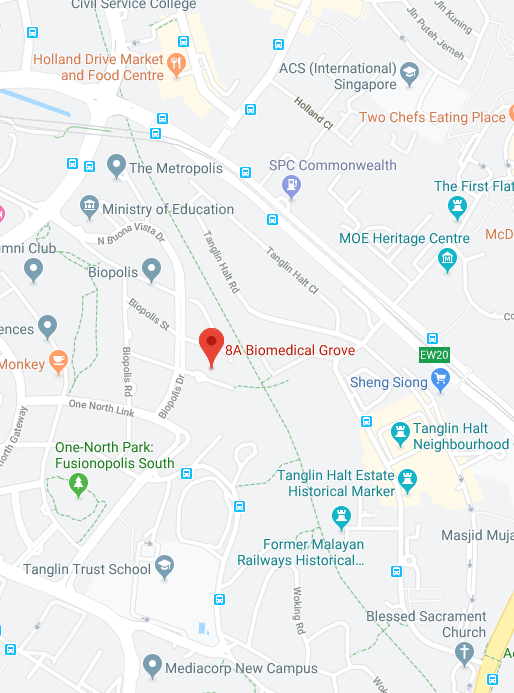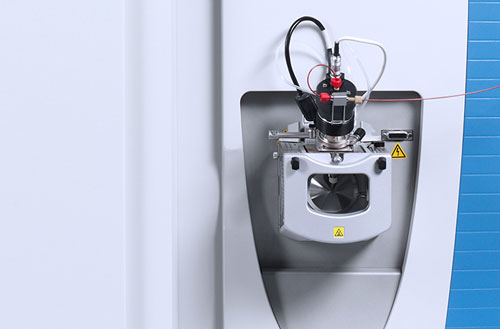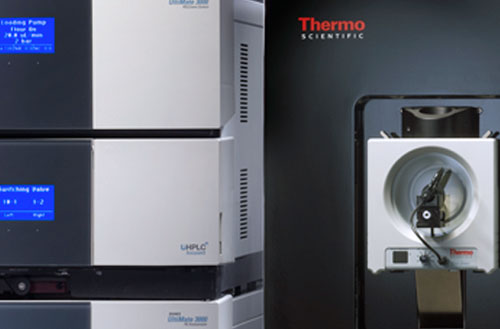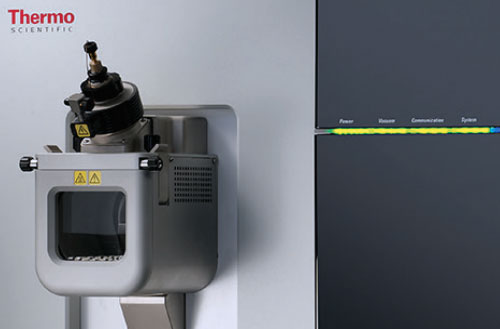RESOURCES
RESOURCES
FUNCTIONAL PROTEOMICS LABORATORY
The Functional Proteomics Laboratory at IMCB is a high profile group with a unique portfolio. It gathers broad expertise from diverse fields including biochemistry, immunology, cell biology and mass spectrometry. Our lab’s long-term research interests are focused on the integration of cell biology and immunology with quantitative mass spectrometry-based proteomics. Our expertise includes multi-omic approaches in precision medicine for personalised therapies, antigen identification pipelines development, body fluid biomarker discovery, clinical proteomics and drug target deconvolution.
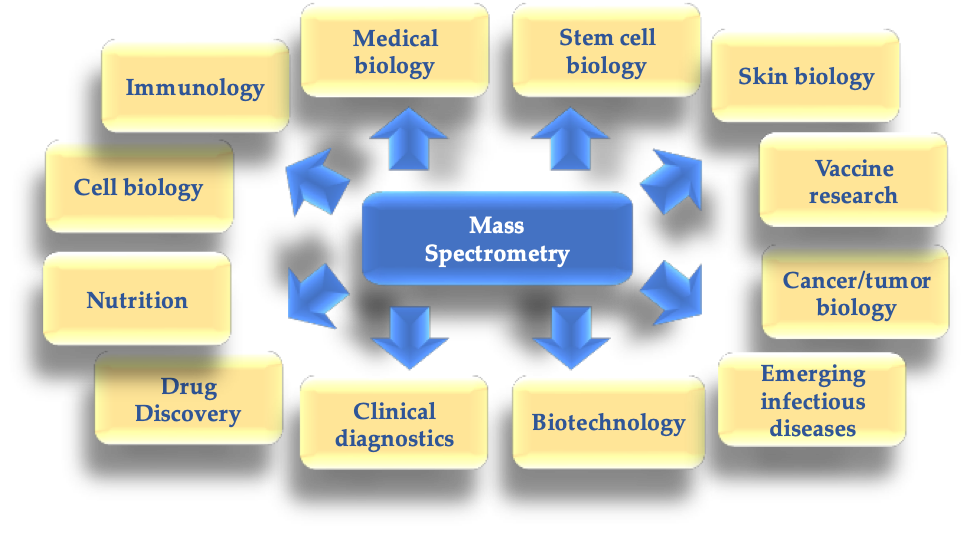
Expertise
The Functional Proteomics Laboratory team has unique expertise in drug discovery target deconvolution, protein/tissue/fluid biomarker identifications and cell biology bioID. The lab’s advanced mass spectrometry services include antigen identification, antibody specificity and characterization, and targeted proteomics validation (MRM, PRM).
Core Expertise
- Biomarker discovery (membrane proteome analysis, secretome analysis, etc.)
- Large scale protein identification experiments (ligand identification)
- Quantitative proteomics (SILAC, TMT, iTRAQ, di-Methyl)
- Quantitative identification of interacting proteins (protein complexes analysis)
- Post-translational modification analysis
- Signaling networks analysis
- DNA-, RNA- protein interactions
- Lipids-protein interactions
- Recombinant proteins/antibodies quality check
- MHC presented peptides identification
- Targeted proteomics PRMs (parallel reaction monitoring)
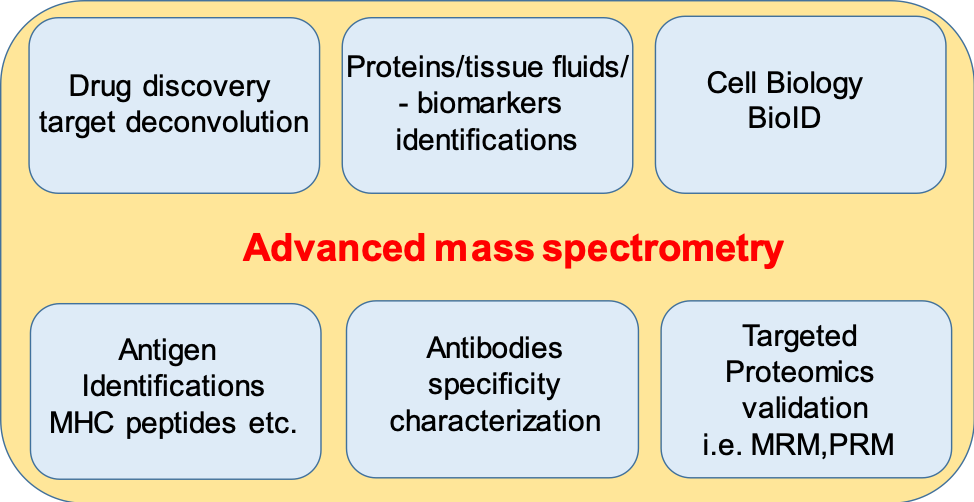
FPL PERSONNEL
Radoslaw Sobota
Principal Investigator, FPL
rmsobota@imcb.a-star.edu.sg
Wang Loo Chien Jeremy
Research Fellow, FPL
wanglc@imcb.a-star.edu.sg
FPL PERSONNEL
Radoslaw Sobota
Principal Investigator, FPL
rmsobota@imcb.a-star.edu.sg
Wang Loo Chien Jeremy
Research Fellow, FPL
wanglc@imcb.a-star.edu.sg
Recent Publications
Q Zeng, YM Soe, Y Lim, RM Sobota, H Schwarz. CD137 ligand interacts with CD32a to trigger reverse CD137 ligand signaling. Cellular & Molecular Immunology, 1-2 (2020).
WC Lee, B Russell, RM Sobota, K Ghaffar, SW Howland, ZX Wong, AG Maier, D Sorin-Semblat, S Biswas, B Gamain, YL Lau, B Malleret, C Chu, F Nosten, L Renia. Plasmodium-infected erythrocytes induce secretion of IGFBP7 to form type II rosettes and escape phagocytosis. eLife 9, e51546 (2020).
A Chojnowski, H Werner, M Cook, RM Sobota, B Burke, CL Stewart. Protein‐Protein Interaction Mapping by 2C‐BioID. Current protocols in cell biology 84 (1), e96 (2019).
L Arora, CSH Tan, RM Sobota, G Sethi. Identification of molecular targets of Tris DBA [Tris (dibenzylideneacetone) dipalladium (0)] for cancer therapy. Cancer Research 79 (13 Supplement), 1240-1240 (2019).
W Sun, L Dai, H Yu, B Puspita, T Zhao, F Li, JL Tan, YT Lim, MW Chen, RM Sobota, DG Tenen, N Prabhu, P Nordlund. Monitoring structural modulation of redox-sensitive proteins in cells with MS-CETSA. Redox biology 24, 101168.
M Ahn, DE Anderson, Q Zhang, CW Tan, BL Lim, K Luko, M Wen, .WN Chia, S Mani, LC Wang, JHJ Ng, RM Sobota, CA Dutertre, F Ginhoux, ZL Shi, AT Irving, LF Wang. Dampened NLRP3-mediated inflammation in bats and implications for a special viral reservoir host. Nature microbiology 4 (5), 789-799.
Grennady Wirjanata , Radoslaw Sobota , Ka Diam Go , Han Yu , Lingyun Dai , Brenda Puspita , Yan Ting Lim , Liyan Chen , Wang Loon Chien, Pär Nordlund, Nayana Prabhu , Jerzy Dziekan, Zbynek Bozdech. Cellular thermal shift assays (CETSA) for the identification of drug-target interactions in the Plasmodium falciparum proteome. Nature Protocols. Manuscript accepted Jan 2020.
Ruan W, Venkatachalam G, Sobota RM, Chen L, Wang LC, Jacobson A, Paramasivam K, Surana U. Resistance to anti-microtubule drug-induced cell death is determined by regulation of BimEL expression. Oncogene. 2019 Feb 15. doi: 10.1038/s41388-019-0727-4. [Epub ahead of print] PubMed PMID: 30770899. Link
Dziekan JM, Yu H, Chen D, Dai L, Wirjanata G, Larsson A, Prabhu N, Sobota RM, Bozdech Z, Nordlund P. Identifying purine nucleoside phosphorylase as the target of quinine using cellular thermal shift assay. Sci Transl Med. 2019 Jan 2;11(473). pii: eaau3174. doi: 10.1126/scitranslmed.aau3174. PubMed PMID:30602534. Link
Lim YT, Prabhu N, Dai L, Go KD, Chen D, Sreekumar L, Egeblad L, Eriksson S, Chen L, Veerappan S, Teo HL, Tan CSH, Lengqvist J, Larsson A, Sobota RM*, Nordlund P. An efficient proteome-wide strategy for discovery and characterization of cellular nucleotide-protein interactions. PLoS One. 2018 Dec 6;13(12):e0208273. doi: 10.1371/journal.pone.0208273. eCollection 2018. PubMed PMID: 30521565; PubMed Central PMCID: PMC6283526. Link *co-corresponding
Chojnowski A, Sobota RM, Ong PF, Xie W, Wong X, Dreesen O, Burke B, Stewart 2C-BioID: An Advanced Two Component BioID System for Precision Mapping of Protein Interactomes. iScience. 2018 Dec 21;10:40-52. doi: 10.1016/j.isci.2018.11.023. Epub 2018 Nov 15. PubMed PMID: 30500481; PubMed Central PMCID: PMC6263017.
Link (https://www.ncbi.nlm.nih.gov/pubmed/30500481) Zhong FL, Robinson K, Teo DET, Tan KY, Lim C, Harapas CR, Yu CH, Xie WH, Sobota RM, Au VB, Hopkins R, D’Osualdo A, Reed JC, Connolly JE, Masters SL, Reversade B. Human DPP9 represses NLRP1 inflammasome and protects against auto-inflammatory diseases via both peptidase activity and FIIND domain binding. J Biol Chem. 2018 Oct 5. pii: jbc.RA118.004350. doi: 10.1074/jbc.RA118.004350. Link
Lau SY, Siau JW, Sobota RM, Wang CI, Zhong P, Lane DP, Ghadessy FJ. Synthetic 10FN3-based mono- and bivalent inhibitors of MDM2/X function. Protein Eng Des Sel. 2018 Aug 30. doi: 10.1093/protein/gzy018. Link
Dai L, Zhao T, Bisteau X, Sun W, Prabhu N, Lim YT, Sobota RM, Kaldis P, Nordlund P. Modulation of Protein-Interaction States through the Cell Cycle. Cell. 2018 Apr 21. pii: S0092-8674(18)30397-0. doi: 10.1016/j.cell.2018.03.065 Link
Tan CSH, Go KD, Bisteau X, Dai L, Yong CH, Prabhu N, Ozturk MB, Lim YT, Sreekumar L, Lengqvist J, Tergaonkar V, Kaldis P, Sobota RM, Nordlund P. Thermal proximity coaggregation for system-wide profiling of protein complex dynamics in cells. Science. 2018 Feb 8. pii: eaan0346. doi: 10.1126/science.aan0346. Link
Kitagawa M, Liao PJ, Lee KH, Wong J, Shang SC, Minami N, Sampetrean O, Saya H,Lingyun D, Prabhu N, Diam GK, Sobota R, Larsson A, Nordlund P, McCormick F, Ghosh S, Epstein DM, Dymock BW, Lee SH. Dual blockade of the lipid kinase PIP4Ks and mitotic pathways leads to cancer-selective lethality. Nat Commun. 2017 Dec 19;8(1):2200. doi: 10.1038/s41467-017-02287-5. Link
Gimpel P, Lee YL, Sobota RM, Calvi A, Koullourou V, Patel R, Mamchaoui K, Nédélec F, Shackleton S, Schmoranzer J, Burke B, Cadot B, Gomes ER. Nesprin-1α-Dependent Microtubule Nucleation from the Nuclear Envelope via Akap450 Is Necessary for Nuclear Positioning in Muscle Cells. Curr Biol. 2017 Oct 9;27(19):2999-3009.e9. doi: 10.1016/j.cub.2017.08.031. Link

